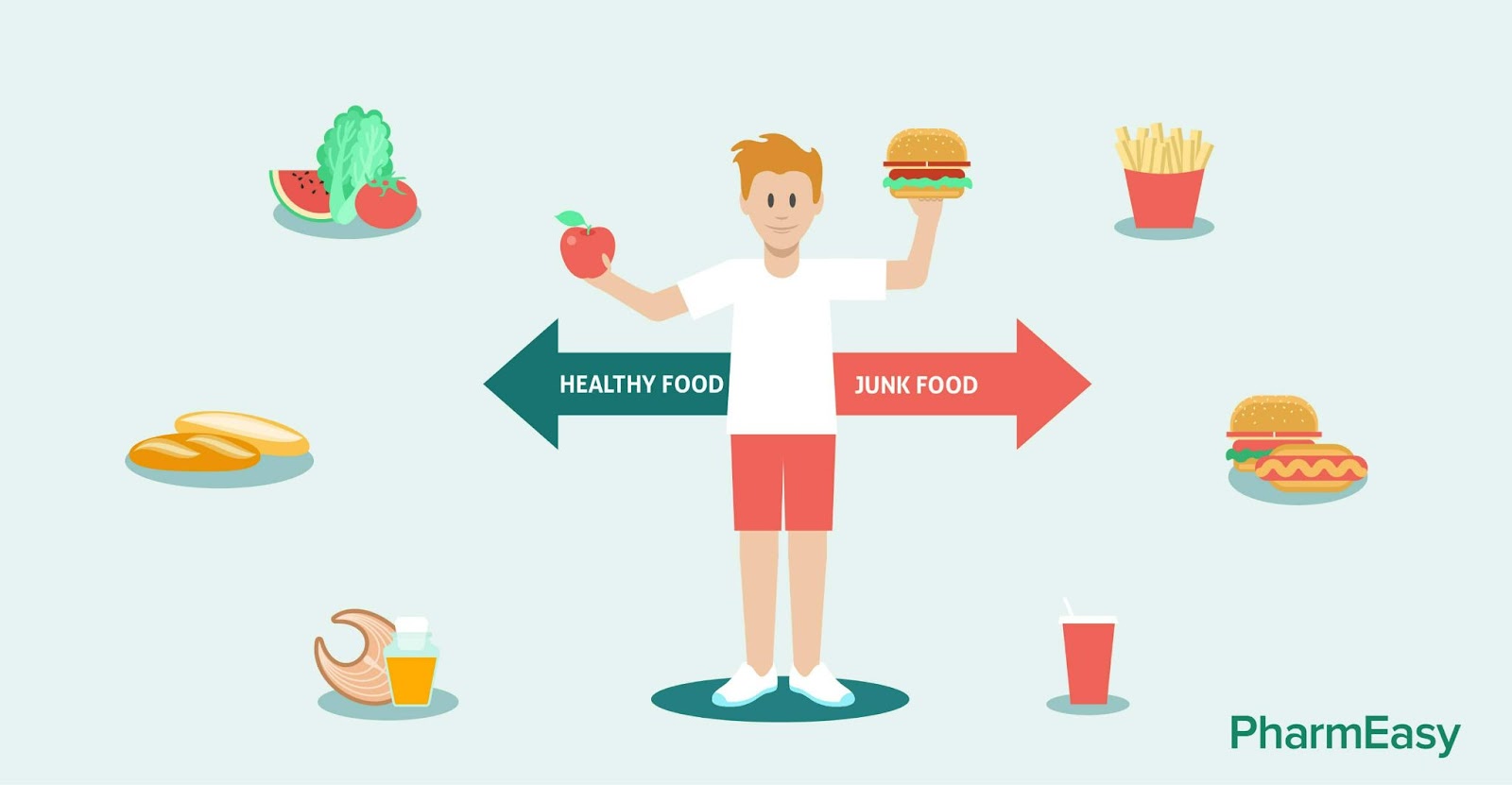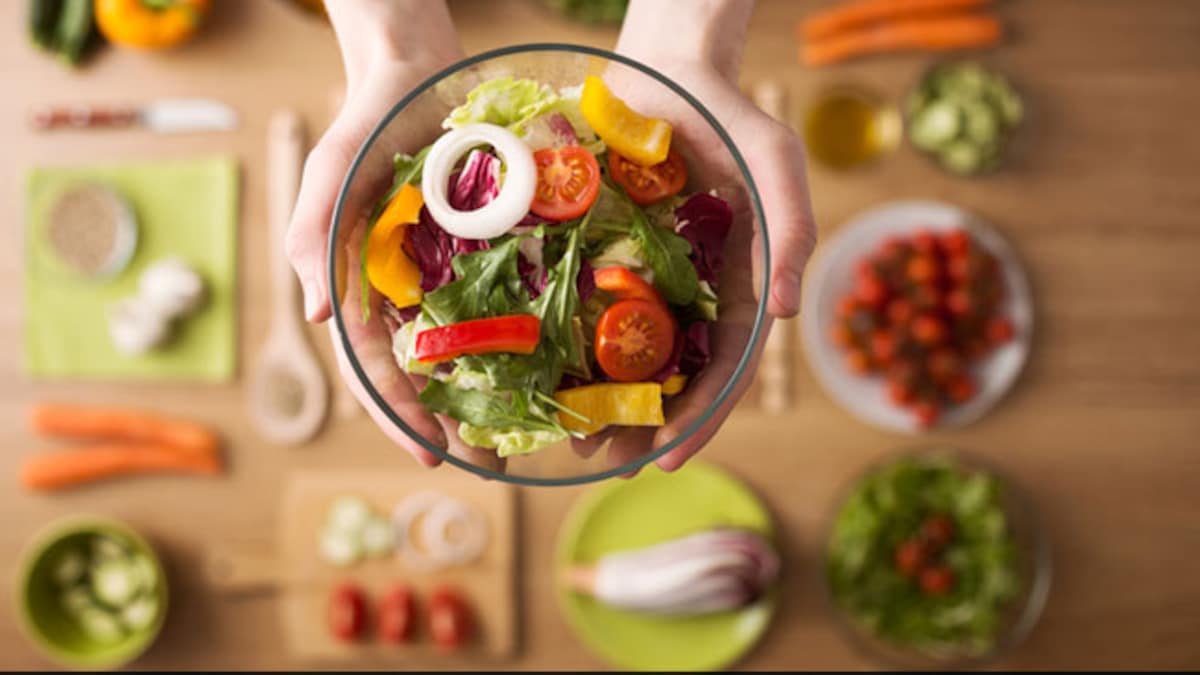Common myths about good nutrition
We hear everywhere that it is better to make an appointment with a doctor rather than self-medicate, that we should consult a nutritionist rather than refuse to eat. But we continue to read advice on forums and experiment with our health.
Many people are used to neglecting good nutrition in general. So what could be better than turning on your favorite online casinos in India and opening a packet of chips? But as it turns out, fruit is not always healthier than snacks.
So what is essential to know not to harm yourself? First, let's look at four myths about good nutrition.

Fruits and vegetables in the diet are helpful.
A couple of days a month on an apple or other fruit diet will not harm your body, but no more. However, diets based on fruits and vegetables alone can harm your health. Over-reliance on vegetables (as well as mono diets like apple diets) can be compared to strict veganism or raw veganism. They lead to a lack of protein, B and D vitamins, calcium, iron, and zinc because plant foods poorly absorb these elements.
In addition, large amounts of fruits and vegetables can cause flatulence, bloating, stool problems, headaches, and even hormonal problems. Also, do not forget about the lack of salt - as this diet can be classified as a salt-free diet, which can cause cramps, dizziness, and depression. Protein-energy deficiency, polyhypovitaminosis, and anemia occur with prolonged consumption of vegetables.
If you like fruits, you need to watch the caloric content because fruits are a source of sugars, which do not make us slimmer.
Also excluded, this diet should be banned for people with gastrointestinal tract problems, pancreatitis, allergies to fruits and vegetables, children, pregnant women, and the elderly. In addition, a menu of fruit or fruit juices increases the risk of developing Parkinson's disease.
One everyday diet says, "To lose weight, you need to eat 1-5 servings of fruit and 2-3 servings of vegetables daily." So American nutritionists set out to test the effectiveness of this recommendation. The study involved more than a thousand people. Its results showed that this dietary regime does not bring the expected effect. The study compared the "plant" diet and the Mediterranean - based on olive oil and seafood. It turned out that the latter worked better. In addition, heart patients who followed the Mediterranean diet were 30% less likely to experience a heart attack.
Bottom line - replacing regular foods with fruits and vegetables is not practical. The main thing is to reduce the caloric content of your food.
You should drink 2 liters of water per day.
2-3 glasses of water a day is quite enough to maintain a normal body water balance. The total amount of water is individual for everyone: on average, 2 liters of water per 66 kg of weight is taken and, of course, depends on humidity:
- 40% - 35-40 ml per 1 kg of weight (in winter, with heating),
- 50% - 30 ml per 1 kg of weight (on average),
- below 40% - more water consumption (in summer).
For example, during a workout, you spend a lot of energy and sweat, so you need to compensate for the lack of fluid in the body. Drinking during meals is also possible and even necessary if the food is solid or dry.
Recent studies show that the body's water balance can be maintained with pure water, tea, and coffee. But it is worth drinking 2-3 glasses of pure water daily to the total amount of fluids. And remember that you should not pour water into yourself by force.
Dietitian from the German Society for Nutrition (DGE) Antje Gal says you should not drink too much at once. It is not suitable for the kidneys. Instead, it would help if you drank a little during the day, at 40 ml per 1 kg of body weight.
Vegetarians and vegans live longer than meat-eaters.
None of the many studies have proven that avoiding meat prolongs life. Also, vegans (but not vegetarians) are generally more prone to deadly diseases: they have a higher chance of developing cancer, a markedly higher death rate from vascular disease of the brain and respiratory system, and overall mortality is slightly higher than adherents of other types of diet.
Strict vegans suffer from a lack of iron, zinc, calcium, copper (which may be sufficient in vegetables but is poorly absorbed from plant foods), vitamins A, B2, B12, and D, and essential amino acids as they age. It leads to dysbiosis, hypovitaminosis, and protein deficiency.
There are several varieties of vegetarianism:
- Veganism (eliminates any animal products),
- Lactoveganism (consumption of dairy products is included),
- Lacto-veganism (has the consumption of dairy products and eggs).
Strict veganism is not recommended for children, pregnant women, nursing mothers, the elderly (because of the risk of osteoporosis), and menopausal women (because of lack of calcium). Lactovegan and lactovegan are more gentle systems, and they can be used in miniature courses (a week or two), especially in the summer. For example, people with obesity, hypertension, atherosclerosis, gout, urolithiasis with uraturia, and chronic renal failure.
Vegetarians eat 75-80% carbohydrates (fruits, vegetables, cereals, bread), 10% protein (nuts, dairy products, eggs, legumes), and 10-15% fat (oil, vegetable fats), whereas humans need at least 30% protein of animal origin.
After comparing the death rates of vegetarians and supporters of the traditional diet, the researchers found virtually no difference.
The only exception was coronary heart disease (CHD): The number of vegetarians who died of the disease was slightly lower than for meat eaters. But the incidence of IBS is independent of dietary style; in India, where vegetarians are in the majority, the mortality rate from IBS is one of the highest in the world.
Other studies have found that an active lifestyle, avoidance of smoking and alcohol consumption, but not a vegetarian diet, can improve health and reduce mortality.

If you want to eat right, cut sweets out of your diet.
Sweets are neither poisonous nor evil. The brain needs glucose for normal functioning, but different methods can obtain it: you can eat sugar, sweeteners, honey, fruit, muesli, and carbonated drinks - everywhere there is glucose. The only question is, are you willing to stop for a few slices of chocolate?
The glucose level necessary for normal functioning of the brain, central nervous system, and other organs is 70-100 mg in 100 ml of blood. An excess indicates a pathological condition, perhaps diabetes mellitus. Everyone has seen the comparative picture on the Internet about the sugar content in different foods and drinks - cola, packaged juices, chocolate bars, oatmeal flakes, and so on. Our norm is 5-10% sugar per day in our essential diet.
So you can and should eat sweets, but in moderation, and remember that fruit also contains sugar.
So, what to do when reading the following dietary advice - to believe them or not? Of course, if you have a problem with excess weight, you need to consult a specialist and find the proper diet. Remember that your body is alive; it sends signals about what it wants at the moment and directs you. Do not force it. Learn to listen to yourself, and then no myths will confuse you.

















